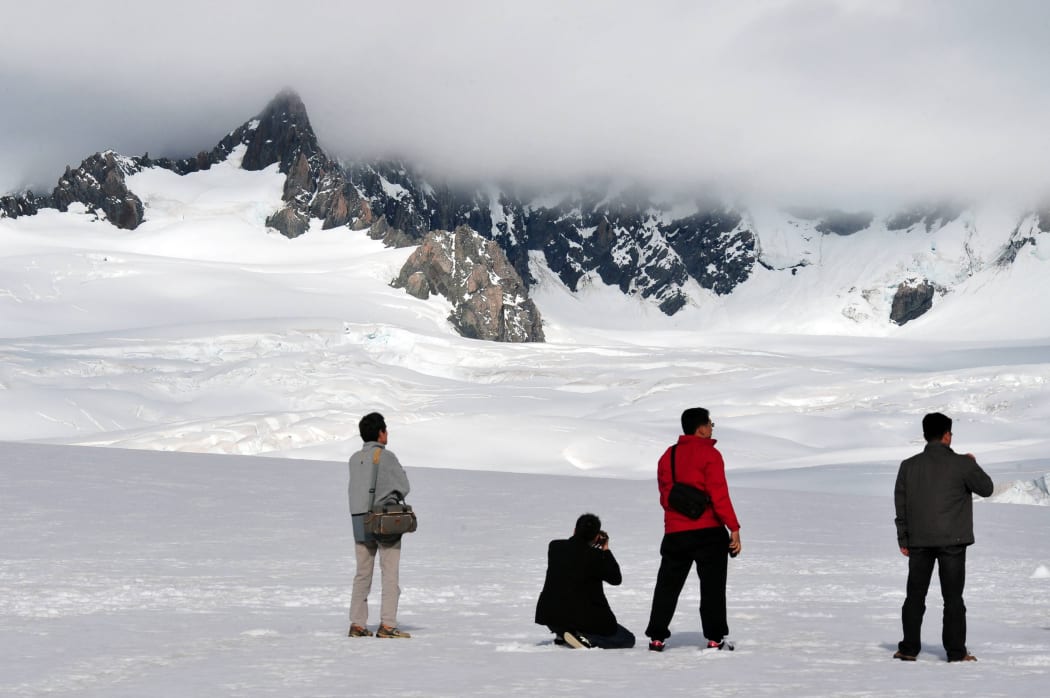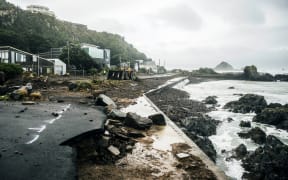New research has finally shown there is a link between greenhouse gas emissions and the melting of New Zealand's glaciers.

Tourists on Fox Glacier in 2009. Photo: Rafael Ben-Ari / 123RF
Until now, only one study has directly linked human activity to the demise of the glaciers.
"That first study looked at decadal changes in how the glaciers are changing due to climate change, so this is the first study that was able to look at the individuals years and the impact of climate change on those," lead author of the new study, Lauren Vargo, said.
Vargo from Victoria University of Wellington's Antarctic Research Centre told Morning Report the study, published in Nature Climate Change, showed more ice melted in years where temperatures also increased.
"Both years, 2011 and 2018 that we looked at, they had warmer than average summers, both in the air temperature and sea surface temperature."
Vargo said they monitored changes using two methods - one is an aerial survey of glaciers that has been conducted every year since 1977, and the other using direct measurements of mass changes on the glaciers.
She said glaciers were at risk of disappearing completely by the end of the century, with research showing if we continue at the current rate of emissions, there would be an 80 percent-range loss in glacier areas and volumes.
While the impact of melting glaciers in general could hit New Zealand's alpine sports and tourism industries, it could have a more devastating effect on countries in Central Asia, she said.
"[Glaciers are] not quite as important in terms of water resources [in New Zealand] as regions like Central Asia ... those areas could be hugely impacted as the glaciers melt and they're really reliant on that water. New Zealand is wet enough."
She is hoping the research will influence policy makers.






